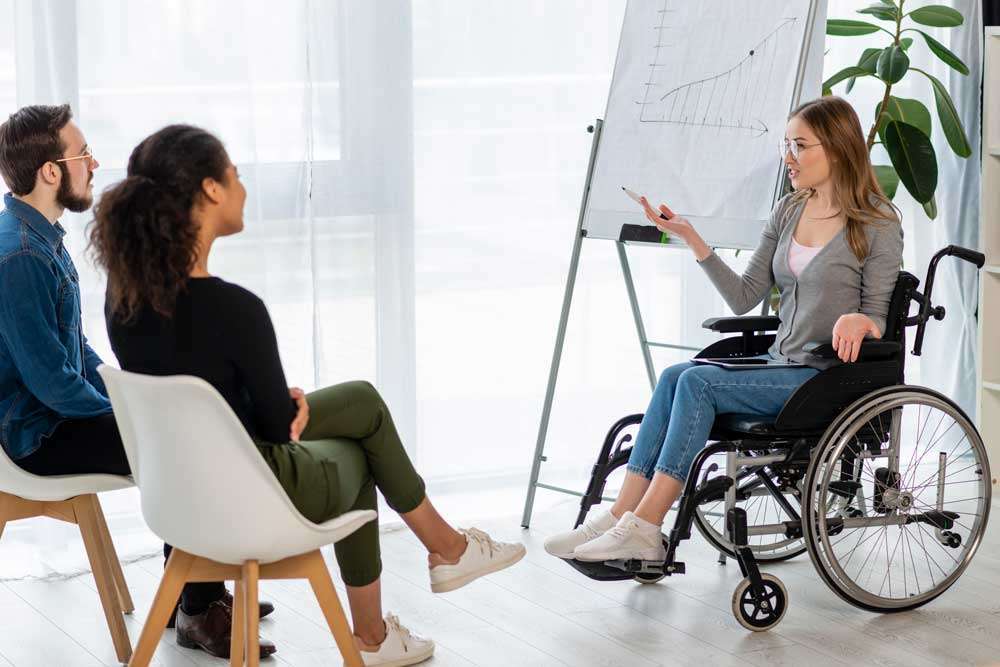As I jot down my thoughts about Disability Etiquette, I cannot but feel uneasy speaking on behalf of others who experience these challenges daily in a physical or psychological sense. Although I draw on information provided by people with disabilities aided by my volunteering experience at an institution that caters to people with a range of disabilities, I apologize in advance if I inadvertently seem presumptuous. But since, as a visibly able-bodied person, I have felt disabled myself in certain situations, mainly as a result of the presence of hurdles or the absence of facility, I cannot but remark that we all experience some form of disability at some point or other in our lives depending on circumstances imposed upon us. It is in this spirit that I present my thoughts on the matter.
The definition of Disability that resonates best with almost all of the personal editorials written by people with disabilities that I have read is “any condition that makes it more difficult for a person to do certain activities or effectively interact with the world around them.” Simple and straightforward, yet so guiding and explicatory. So, a physical disability may make it difficult for an individual – any individual -to interact with the physical world around him or her, and a sensory disability may affect the way a person gathers information. That’s it. It doesn’t mean in any way that individuals with disabilities don’t have their unique personalities, talents, knowledge, and lives. If anything, people who live with disabilities have more in common than not with those who have no disability – whatever these last three words may mean. We all share the same existence and the same basic needs. Accordingly, I find the three issues of Equity, Invisible Disabilities, and Awkwardness related and essential!
What do language barriers, internet disconnections, absence of ramps, broken pavements, unmodified taxis, narrow doors, unmodified bathrooms, high reception counters, and lack of lifting services have in common? Answer: Lack of Equity!
Simply put, equity relates to fairness. Specifically, equity in disability is recognizing that some people are more disadvantaged than others in being able to access services and facilities.
Based on the above definition, to achieve equity in disability, Reasonable Accommodation (RA) needs to be applied. RA refers to any necessary and appropriate modifications and adjustments to the environment and the way things are usually done to eliminate the unjust or undue burden and allow an individual with a disability to enjoy equal access to benefits available to other individuals in the workplace general surroundings.
Another concern is recognizing that not all disabilities are visible. Chronic fatigue syndrome, epilepsy, and post-traumatic stress disorder are just a few examples of such disabilities. Persons with such disabilities should – have the right to – let people around them know what necessary modifications and adjustments need to be done to the environment to minimize any disadvantages that may result due to a lack of “equity” and allow them equal access to benefits available to other individuals in the workplace and the general surroundings.
A third recurring theme on the topic is that of awkwardness versus prejudice. It appears that a lot of people are not sure how to behave when interacting with persons with visible afflictions. Although they want to be helpful and polite, they worry that they might accidentally offend them and hence may unintentionally appear prejudiced. It is important to note however that person who is awkward around a disabled person is unlikely to be truly prejudiced.
So, whether the aim is to avoid awkwardness or achieve equity, people need to listen to the voice of those with disabilities and realize that it is a society that needs to change, NOT people with disabilities.
A good place to start is to focus on people’s abilities rather than their disabilities and when in doubt about how to help or what words to use, just ask.

